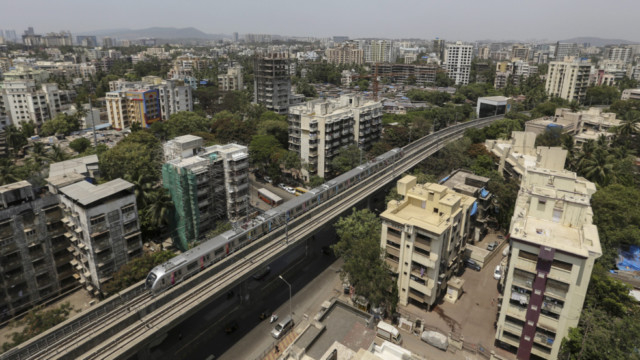
Dubai: India’s stock markets have been on a dream run; the rupee has shed the weakness accumulated over the last nine months; and there’s a new buzz apparent in India’s corporate circles. Put these down to the “Modi Factor”.
But for India’s property market the rub-off from Narendra Modi’s BJP government taking over has not translated into a visible uplift in sentiments so far. Will this state of inertia — real estate was one of the worst hit from a weakening Indian economy — change? And if it does, how soon? These questions assume significance for expat Indians as the Indian Property Show opens in Dubai on Thursday.
“With the new government, we expect a stimulation in the inflow of foreign investments,” said Pratik Patel, director at Rajesh LifeSpaces. “Currently, 100 per cent of FDI (foreign direct investment) is allowed in real estate, covering housing, hotels, infrastructure, townships, etc. This will definitely uplift the sentiments of investors and end-users alike — we are already seeing the changes.”
Others echo similar sentiments, stating that an improvement can take several forms. “There is an anticipation of several policies to cheering up the sector that had reached a plateau in the recent past,” said Muzammil Shaikh, CEO of Soundlines Realty. “With an easing of regulations, developers are expected to speed up construction and provide relief to those who have already invested and building confidence in the minds of prospective investors.”
Even if investors within India were cooling off on property exposures, that certainly was not the case with expat Indians. In each of the last two years, there was a markedly high spike in new buys by this category of buyers, helped along by the rupee’s decline to the 65-66 level to the dollar. (It had even touched 68 to the dollar briefly.)
Now, with a rupee ascendant again, expat Indians suddenly find they are having to shell out a lot more of dirhams to make a purchase or make mortgage payments on existing buys. Even then, industry sources reckon the rupee level in itself should not divert buyer attention.
“The rupee everyone must realise is only recovering against its previous fall — that’s a good sign for the Indian economy and by extension for the investments of NRIs as these are headed into a stronger economy,” said Alpesh Ajmera, director of Ajmera Cityscapes.
“The enthusiasm reflected in the stock markets reflects expectations; this could be the right time to take a call on real estate If one intends to invest.”
The sector may be getting help from another quarter as well — India’s central bank. The Reserve Bank of India at its last meeting left interest rates unchanged while cutting the cash reserve requirements banks had to maintain by 25 basis points. Patel sees positives from this as its frees up liquidity at banks and even ventures the hope interest rates could be cut once the inflation menace is brought under control.
A bit of help on the interest rates and the “Modi Factor” finally showing up could be just what India’s property market needs.











